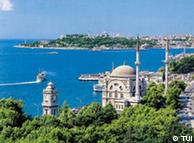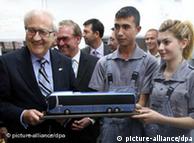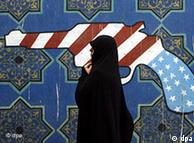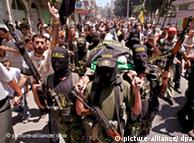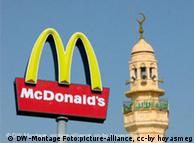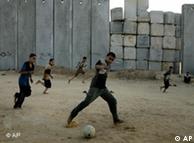http://www.newsweek.com/2010/05/26/the-missing-oil-spill-photos.html
BP's Photo Blockade of the Gulf Oil Spill
Photographers say BP and government officials are preventing them from
documenting the impact of the Deepwater Horizon disaster.
[photo]
Jean-Michel Cousteau (center) was turned away from a wildlife
sanctuary by the U.S. Coast Guard after they discovered that an AP
photographer was on board.
As BP makes its latest attempt to plug its gushing oil well, news
photographers are complaining that their efforts to document the
slow-motion disaster in the Gulf of Mexico are being thwarted by local
and federal officials—working with BP—who are blocking access to the
sites where the effects of the spill are most visible. More than a
month into the disaster, a host of anecdotal evidence is emerging from
reporters, photographers, and TV crews in which BP and Coast Guard
officials explicitly target members of the media, restricting and
denying them access to oil-covered beaches, staging areas for clean-up
efforts, and even flyovers.
Last week, a CBS TV crew was threatened with arrest when attempting to
film an oil-covered beach. On Monday, Mother Jones published this
firsthand account of one reporter's repeated attempts to gain access
to clean-up operations on oil-soaked beaches, and the telling response
of local law enforcement. The latest instance of denied press access
comes from Belle Chasse, La.-based Southern Seaplane Inc., which was
scheduled to take a New Orleans Times-Picayune photographer for a
flyover on Tuesday afternoon, and says it was denied permission once
BP officials learned that a member of the press would be on board.
"We are not at liberty to fly media, journalists, photographers, or
scientists," the company said in a letter it sent on Tuesday to Sen.
David Vitter (R-La.). "We strongly feel that the reason for this
massive [temporary flight restriction] is that BP wants to control
their exposure to the press."
The ability to document a disaster, particularly through images, is
key to focusing the nation's attention on it, and the resulting
clean-up efforts. Within days of the 1989 Exxon Valdez spill, pictures
of dead otters, fish, and birds, as well as oil-covered shorelines,
ignited nationwide outrage and led to a backlash against Exxon.
Consumers returned some 10,000 of Exxon's 7 million credit cards.
Forty days after the spill, protestors organized a national boycott of
Exxon. So far, no national boycott of BP is in the works, despite
growing frustration over the company's inability to cap the leaking
well. Obviously, pictures are emerging from this spill, but much of
the images are coming from BP and government sources.
The U.S. Coast Guard insists that they and BP have gone to great
lengths to accommodate journalists and "roughly 400 members of the
media have been given tours of the spill on either BP-contracted
aircraft or Coast Guard helicopters," says U.S. Coast Guard Petty
Officer David Mosley, who is based at the BP command center in Houma,
La. (BP referred all questions to the command center). "I understand
there may be some frustration [among the press], but there is a
constant ongoing effort to fulfill media requests." Mosley defended
flight restrictions as a necessary safety precaution. Since the flight
restrictions were expanded on May 11, private aircraft must get
permission from BP's command center to fly over a huge portion of the
Gulf of Mexico encompassing not just the growing slick in the Gulf,
but the entire Louisiana coastline, where oil is washing ashore. If a
request is denied, aircraft must stay 3,000 feet above the restricted
area, where visibility is minimal.
Photographers who have traveled to the Gulf commonly say they believe
that BP has exerted more control over coverage of the spill with the
cooperation of the federal government and local law enforcement. "It's
a running joke among the journalists covering the story that the words
'Coast Guard' affixed to any vehicle, vessel, or plane should be
prefixed with 'BP,' " says Charlie Varley, a Louisiana-based
photographer. "It would be funny if it were not so serious."
The problem, as many members of the press see it, is that even when
access is granted, it's done so under the strict oversight of BP and
Coast Guard personnel. Reporters and photographers are escorted by BP
officials on BP-contracted boats and aircraft. So the company is able
to determine what reporters see and when they see it. AP photographer
Gerald Herbert has been covering the disaster since the Deepwater
Horizon rig exploded on April 20. He says that access has been hit or
miss, and that there have been instances when it's obvious members of
the press are being targeted. "There are times when the Coast Guard
has been great, and others where it seems like they're interfering
with our ability to have access," says Herbert. One of those instances
occurred early last week, when Herbert accompanied local officials
from Plaquemines Parish in a police boat on a trip to Breton Island, a
national wildlife refuge off the barrier islands of Louisiana. With
them was Jean-Michel Cousteau, son of Jacques, who wanted to study the
impact of the oil below the surface of the water. Upon approaching the
island, a Coast Guard boat stopped them. "The first question was, 'Is
there any press with you?' " says Herbert. They answered yes, and the
Coast Guard said they couldn't be there. "I had to bite my tongue.
That should have no bearing."
Local fishermen and charter boat captains are also being pressured by
BP not to work with the press. Left without a source of income, most
have decided to work with BP to help spread booms and ferry officials
around. Their passengers used to include members of the press, but not
anymore. "You could tell BP was starting to close their grip, telling
the fishermen not to talk to us," says Jared Moossy, a Dallas-based
photographer who was covering the spill along the Gulf Coast earlier
this month. "They would say that BP had told them not to talk to us or
cooperate with us or that they'd get fired."
Some Gulf Coast watermen find BP's desire to limit press access
obvious. "If there was a major fire in a warehouse, would you let
reporters go inside and start taking pictures?" asks Peace Marvel, a
charter-boat captain in Venice, La. Job one, he says, is to clean up
the spill, and running members of the press around only gets in the
way and makes things worse. "Nobody wants this marsh saved as much as
we do." Since the spill, Marvel has turned his 15 years of experience
into helping coordinate the logistics of ferrying BP officials around
the Gulf Coast to deal with the spreading disaster. His current
contract with BP lasts for 30 more days, and he says he's making more
money working for BP than he did as a charter-boat captain. "I'm
hustling for business," he says.
So are the reporters and photographers trying to cover the worst
environmental disaster in the history of the U.S. waters. They'll have
to do it without the help of people like Peace Marvel, and against the
will of BP.
------------------------------------
Report any problems, suggestions or abuse to Individual-Sovereignty-owner@yahoogroups.com
Yahoo! Groups Links
<*> To visit your group on the web, go to:
http://groups.yahoo.com/group/Individual-Sovereignty/
<*> Your email settings:
Individual Email | Traditional
<*> To change settings online go to:
http://groups.yahoo.com/group/Individual-Sovereignty/join
(Yahoo! ID required)
<*> To change settings via email:
Individual-Sovereignty-digest@yahoogroups.com
Individual-Sovereignty-fullfeatured@yahoogroups.com
<*> To unsubscribe from this group, send an email to:
Individual-Sovereignty-unsubscribe@yahoogroups.com
<*> Your use of Yahoo! Groups is subject to:
http://docs.yahoo.com/info/terms/
--
Thanks for being part of "PoliticalForum" at Google Groups.
For options & help see http://groups.google.com/group/PoliticalForum
* Visit our other community at http://www.PoliticalForum.com/
* It's active and moderated. Register and vote in our polls.
* Read the latest breaking news, and more.









